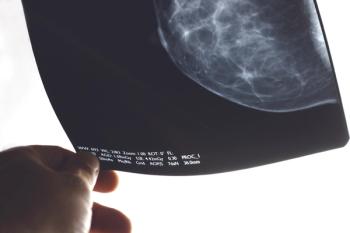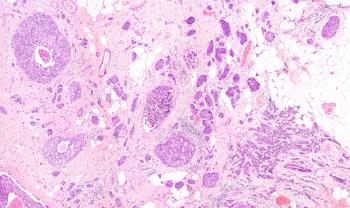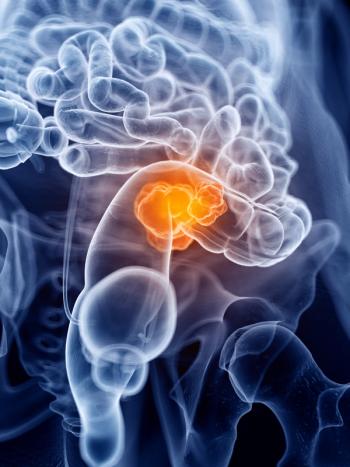
Oncology NEWS International
- Oncology NEWS International Vol 16 No 12
- Volume 16
- Issue 12
New technique enhances binding avidity of MoAbs
New technology from InNexus Biotechnology, known as Dynamic Cross-Linking (DXL), could be used to improve the target-binding affinity of existing monoclonal antibodies (MoAbs) as well as those in development.
VANCOUVER, British Columbia, CanadaNew technology from InNexus Biotechnology, known as Dynamic Cross-Linking (DXL), could be used to improve the target-binding affinity of existing monoclonal antibodies (MoAbs) as well as those in development.
The company recently announced laboratory results of its first product candidate DXL625 (CD20), a humanized anti-CD20 MoAb enhanced with DXL technology, being developed for the treatment of non-Hodgkin's lymphoma.
The DXL technique involves modifying a MoAb by adding a small peptide sequence that becomes self-recognizing when two or more MoAb molecules are in close proximity.
This self-binding property causes the modified antibodies to cluster at the target receptor, resulting in greater molecular mass on the surface of the target cell (see Figure).
Preclinical studies have shown that this higher MoAb concentration at the point of attack provides a potency advantage over conventional MoAbs in inducing cell growth inhibition, apoptosis, antibody-dependent cellular cytotoxicity, and complement-dependent cytotoxicity.
The company believes that by achieving a higher concentration of antibody at the antigen target, dose reduction may be possible.
DXL625 was constructed by chemically attaching (cross linking) the DXL peptide to an anti-CD20 antibody. A fusion protein version of the antibody is also being investigated. Results of in vivo studies of DXL625 were presented at the IBC Life Science Drug Discovery and Development of Innovative Therapeutics Conference in Boston.
The studies showed that DXL625 had a higher binding affinity to the target antigen CD20, compared with the unconjugated parent molecule, and a greater ability to induce apoptosis in cell-based assays. In B cell tumor cells, apoptosis was 50% at day 3 for DXL625 vs 12% for the parent antibody.
In three different cell lines, DXL625 resulted in a "remarkable" increase in complement-dependent cytotoxicity, compared with unconjugated anti-CD20, the researchers said, and in DHL-4 and Raji cell lines, DXL625 exhibited greater inhibition of cell proliferation.
Studies also showed that DXL625 did not have significant immunogenicity or toxicity in mice.
Another DXL antibody targeting HER2/neu showed significantly more potency than the parent antibody in slowing tumor progression in a xenograft disease model, the company said.
Articles in this issue
about 18 years ago
Third-line single-agent cetuximab ups overall survivalabout 18 years ago
Modern multislice CT propels pancreas imaging forwardabout 18 years ago
Sorafenib gets ok for liver cancerabout 18 years ago
Celgene to acquire Pharmionabout 18 years ago
Novacea halts ASCENT-2 trialabout 18 years ago
RT/temozolomide raises possibility of cure in glioblastomaabout 18 years ago
Brachytherapy as effective in younger as in older menabout 18 years ago
MMA not harming patientsabout 18 years ago
Kinase inhibitor may prevent RT-induced lung injuryabout 18 years ago
FDA approves lower starting dose for dasatinib for CMLNewsletter
Stay up to date on recent advances in the multidisciplinary approach to cancer.






































